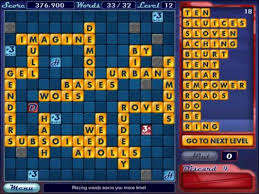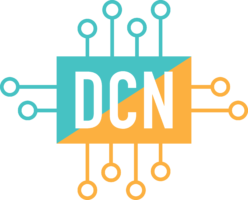The Youth of Today and Online Gaming
Conference Paper.doc
Abstract
This paper aims to investigate the power online gaming holds in cross-platform online gaming communities, and argues that online educational games are positively and constructively aiding the development of the youth of today. This paper explores the theory of online gaming communities and their relationship to online educational gaming and the youth playing them. This paper shall argue how the youth of today take advantage of online gaming as a positive and constructive development tool and not only for entertainment purposes. Research has proven that games online assists youngsters to acquire experience and acquire knowledge amongst the online gaming community.
The Youth of Today and Online Gaming
The simplest manner of explaining the word “game” is a set of guidelines that players need to respect when participating in a game (Matt,2010). The guidelines also referred to as rules, differ from one game to another. Various types of games exist, such as board games, games played outdoors and most recent category of games, video games also known as console games which are either played on personal computers or other electronic console devices such as the Nintendo Wii or famously known PlayStation by Sony. This conference paper will argue that gamming online has a lot to give for the positive and constructive development of the youth of today. Parents and guardians are at long last beginning to realise about the positive effect that online gaming has on the life of their posterity. Research proves that youngsters benefit from online gaming which in turn intensifies their knowledge and involvement amongst the gaming community online. While many people believe that games online are a waste of time and that many youngsters are most probably drawn to play games online rather than studying, this perception is changing with people now seeing online gaming in a different light. Studying our youth and their involvement with an overall perspective, this conference paper will argue that educational games online, escapism and online games as a worldwide platform are assisting today’s youth to obtaining knowledge and skills in their daily lives.

Educational Games Online
Educational games online are developed to enable a simpler learning process of acquiring knowledge. There is no obligation for the online educational games to be following a certain curriculum of a subject or theme, however it is imperative that the student or youngster is learning something substantial to be considered an online educational game. Journals and case studies shall be utilised to corroborate that educational games online are indeed aiding numerous individuals to obtain experience and for learning purposes. To begin with, an article written by Meilan Zhang supports my argument, her article is focused on “Determining the imbalanced importance in well-liked educational gaming online and its significance” (Zhang,2014). From Zhang’s point of view, notwithstanding the rising academia interest in games that are educational, studies on online gaming is atypical. With regards to online gaming that is educational, very little evidence has been lifted so far at what level extent it is popular with our younger generation (Eseryel, Ge, Ifenthaler & Law, 2011). The author of the article inquiries what sort of user is captivated by online educational gaming and if functioning wise it can be considered as a scholastic perspective in the world of academia. The research done by Meilan Zhang encompassed studies done on the internet, social and demographic factors and a nation-wide educational evaluation to analyse the connection between educational online game sites, social and demographic variables and scholarly results (Zhang,2014). The results of this analysis demonstrated that scholars which were less performing in their studies were keener on educational online gaming, which consequently helped these scholars in increasing their learning capabilities (Wideman et al., 2007). The feature which was found most valuable was one where students using online educational games through a platform could share and converse knowledge to each other, allowing constructive educational information to be shared in a fast and easy manner.
Secondly, a scholarly journal composed by Shawn Conrad, Jody Clarke-Midura and Eric Klopfer will be backing my argument. The Journal is basically composed about how multiplayers taking part in online gaming can exploit it as an informative means of learning while confronting new difficulties they might be facing in their studies. This journal plots a plan for the improvement of scholarly multiplayer online gaming considering the activity hypothesis, as a contrasting option to the present patterns in multiplayer gaming online and a method for enhancing joint efforts such as teamwork among scholars (Conrad, Clarke-Midura and Klopfer, 2014). With a specific end goal to analyse whether online educational games truly have a thought of different components with regards to educational play, they have broken up their research in four phases. To begin the first phase was to see the recurrence of playing educational online games every day. Secondly was to relate the empathy with the user and the online games they play. The third phase was to recognize which of the educational online games are the most played and the last stage was discovering psychosocial elements that may impact studying. In the wake of breaking down the diverse phases, they reached to the conclusion that the learning framework using online educational gaming is a way to deal with exceptionally complicated educational concerns, and has a remarkably constructive result towards the education system that our youth take part in today (Conrad, Clarke-Midura & Klopfer, 2014). Being able to access multiplayer educational games online, not only aids a scholar to learning more in depth but also have the opportunity to share knowledge with an online community of scholars.
The last scholarly article that will back my argument is by Aydogan Ozcan a professor at the University of California, who based the research for his article on using educational games online alongside online training for the aid in the diagnosis of malaria. “Visual microscopy for malaria identification is hardly an extensive procedure that needs expert medical staff to physically image plasma smear flanks in alternative. Controlled environments, such as an analytical examination is often restricted by the absence of medical professionals and incompetent guidance for the personnel” (Ozcan, 2014). The California Medical College chose to apply a online educational bio game by offering a biological program analysis utilising a collective database. Secondly included, was the application of a system set up to train the medical staff to detect malaria using the online educational bio game. The medical college of California had difficulty had a concern when it came to training their medical practitioners tangibly. Therefore, the application of a hands-free, non-physical manner using prep work to differentiate colonic illness is being completed though an online platform and all medical staff working on malaria cases have the capability to do diagnostic work on patients, and communicate with each other live to obtain more accurate results (Ozcan, 2014). Using all three journals we can conclude that research has proven the youth of today is without a doubt obtaining knowledge and experience in our community by utilising online educational games.
Escapism

This section shall argue that escapism through online gaming is aiding the constructive development of today’s youth. To begin with, what is escapism? The routine of eluding a dull or disagreeable life by taking part in activities such as reading or other that makes us think we are in far away place is known as Escapism (Leonard, Burke, Donnelly & Notaro, 2003). Numerous online gaming users these days participate in an online gaming stage just to have the sense of being cut from reality. A feeling which gives online gamers a sentiment that they can be expressively unrestricted. The first argument backed up by scholarly texts, will set points forward proving that the use of escapism can be used to liberate one’s thoughts instead of being categorised or viewed as being antisocial behaviour (Kardefelt-Winther, 2014).
A scholarly article titled “Digital Technology, Age, and Gaming” explains through a study done, how people whom have emotional or psychosomatic problem use online gaming at a great extent to handle their issues. Information for the study was gathered from questionnaires that was given to gamers that play League of Legends and it was found that a large number of gamers played the game as a form of escapism, to evade their high levels of anxiety and low self-confidence (Holmes, 2005). Be that as it may, the downside of escapism factors is that while it may optimistically help a person with high levels of anxiety and low self-confidence, the effect is only temporary as after playing a game the person is back to reality having to face the life problems that they were stressing about before escaping into the online gaming world (Holmes, 2005).


League of Legends, an online community popular game with today’s youth that indulge in escapism.
While there are many different forms of escapism, we shall investigate the impacts of how idealistic online gaming as a form of escapism is. People indulging in such form of game play escapism known as online gamer escapists are people who use online gaming to dodge their real life issues (Kaczmarek & Drążkowski, 2014). A study by university students examined the issues existing with online gaming as a form of escapism. Amid the principle issue there are authenticity convictions, duration of gaming, offline assistance and online collective assistance for offline issues. The enquiry demonstrates that a person with inspiration to indulge in escapism, tend to experience a more substantiated pleasure legitimacy with games and played for longer periods, which thus has a decent outcome in supporting benefits of online gaming however though diminishes the help needed for real life issues (Kaczmarek & Drążkowski, 2014).
Conclusion
Numerous individuals have their own distinctive perspective gaming over the internet. However, scholastic articles support the fact that online gaming is strongly aiding online gamers in completing mentally challenging tasks in their everyday life, whether it is for their studies or in their career. The online gaming community is consistently changing, and there are no firm and steady guidelines one can take after to guarantee that individuals play. Educational games online are helping scholars in their studies and escapism is encouraging the lonelier individuals to increase self-confidence while playing online games with online communities. Analysing the experiences of others with online gaming through scholarly journals, teaches us how to use online gaming at our advantage, weather it is for educational or for well-being purposes. While online gaming is relatively new, the future of online gaming helping individuals is without a doubt a bright one.
References:
Conrad, S., Clarke-Midura, J., & Klopfer, E. (2014). A Framework for Structuring Learning Assessment in a Massively Multiplayer Online Educational Game. International Journal Of Game-Based Learning, 4(1), 37-59. http://dx.doi.org/10.4018/ijgbl.2014010103
Eseryel, D., Ge, X., Ifenthaler, D., & Law, V. (2011). Dynamic Modeling as a Cognitive Regulation Scaffold for Developing Complex Problem-Solving Skills in an Educational Massively Multiplayer Online Game Environment. Journal Of Educational Computing Research, 45(3), 265-286. doi: 10.2190/ec.45.3.a
Holmes, N. (2005). Digital Technology, Age, and Gaming. Computer, 38(11), 108-107. http://dx.doi.org/10.1109/mc.2005.376
Leonard, S., Burke, D., Donnelly, C., & Notaro, A. (2003). Escapism. Books Ireland, (259), 155. http://dx.doi.org/10.2307/20624020
Ozcan, A. (2014). Educational Games for Malaria Diagnosis. Science Translational Medicine, 6(233), 233ed9-233ed9. http://dx.doi.org/10.1126/scitranslmed.3009172
Kaczmarek, L., & Drążkowski, D. (2014). MMORPG Escapism Predicts Decreased Well-Being: Examination of Gaming Time, Game Realism Beliefs, and Online Social Support for Offline Problems. Cyberpsychology, Behavior, And Social Networking, 17(5), 298-302. http://dx.doi.org/10.1089/cyber.2013.0595
Kardefelt-Winther, D. (2014). The moderating role of psychosocial well-being on the relationship between escapism and excessive online gaming. Computers In Human Behavior, 38, 68-74. doi: 10.1016/j.chb.2014.05.020
Wideman, H., Owston, R., Brown, C., Kushniruk, A., Ho, F., & Pitts, K. (2007). Unpacking the potential of educational gaming: A new tool for gaming research. Simulation & Gaming, 38(1), 10-30. doi: 10.1177/1046878106297650
Zhang, M. (2014). Discovering the unequal interest in popular online educational games and its implications: A case study. British Journal Of Educational Technology, 47(2), 358-371. http://dx.doi.org/10.1111/bjet.12236
